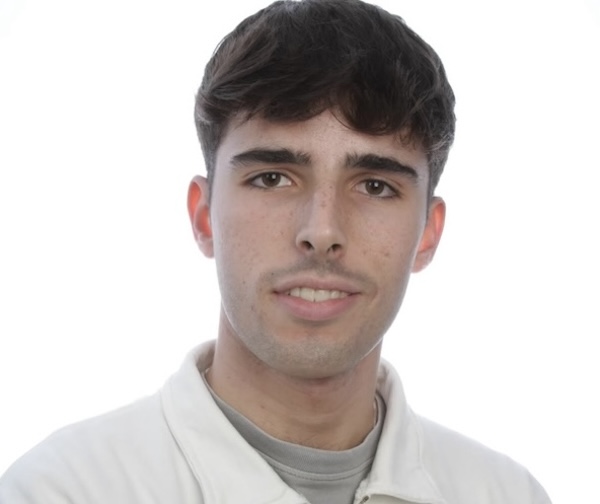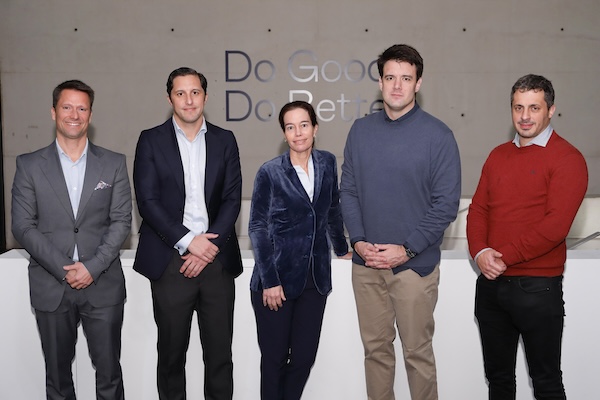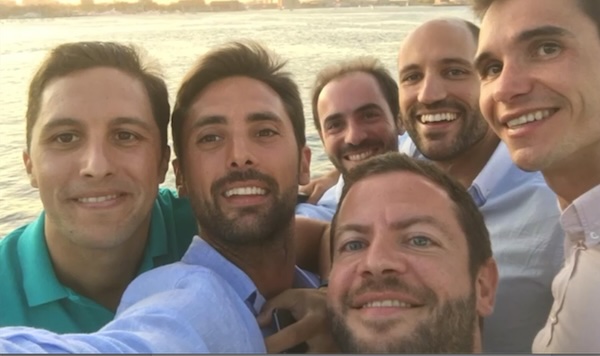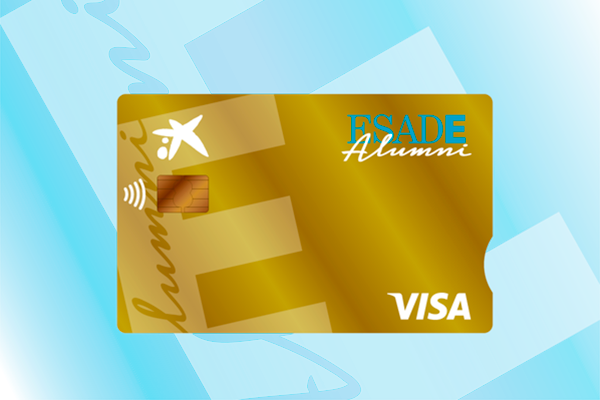Mar Penas, founder and CEO of Oona, fascinated by self-care and the ability of software to amplify impact, has brought this vision to life in a unique platform
Oona is the place where people discover therapies, events and wellness experiences, while professionals in the sector gain the visibility, community and tools they need to grow. The startup has been selected by the Lanzadera accelerator, and Mar Penas tells us about the experience.
-Oona is positioned at the intersection of wellbeing and technology. How did you identify this niche? What unique value do you bring to wellbeing professionals?
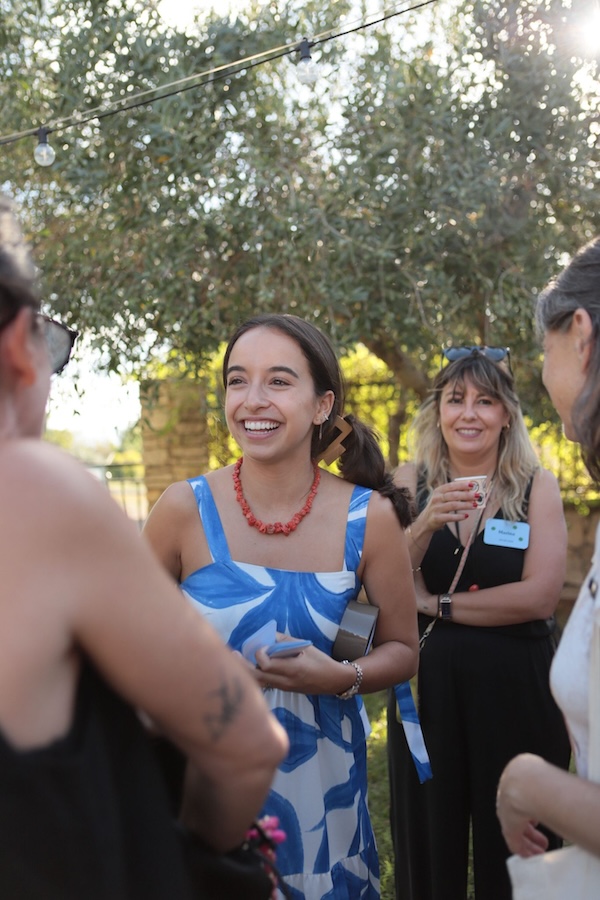 I would define the intersection between wellbeing and technology not as a niche but as a solution to an increasing need in advanced societies, with a rising demand. I identified this business with such a huge potential based on my own personal experience. I've always been interested in the impact that different wellbeing practices can have depending on the time in life or the challenges we're facing. But I came upon many barriers to accessing this information: there was a lack of platforms where you could clearly see what each professional does, with clear information like photos and prices, and with simple, humane explanations of how they can help you.
I would define the intersection between wellbeing and technology not as a niche but as a solution to an increasing need in advanced societies, with a rising demand. I identified this business with such a huge potential based on my own personal experience. I've always been interested in the impact that different wellbeing practices can have depending on the time in life or the challenges we're facing. But I came upon many barriers to accessing this information: there was a lack of platforms where you could clearly see what each professional does, with clear information like photos and prices, and with simple, humane explanations of how they can help you.
Oona sprang precisely from this need: as a digital space where you can find all that information clearly and accessibly in a centralized place. For well-being professionals, Oona not only brings visibility but also gives them tools to better connect with their audience, to be part of a professional and mutually supportive community, and to grow without the need to become marketing experts. We help them build their brand and have the space and freedom to focus on what they do best.
Oona sprang precisely from this need: as a digital space where you can find all that information clearly and accessibly in a centralized place. For well-being professionals, Oona not only brings visibility but also gives them tools to better connect with their audience, to be part of a professional and mutually supportive community, and to grow without the need to become marketing experts. We help them build their brand and have the space and freedom to focus on what they do best.
-You're currently in the midst of the Lanzadera acceleration program. What are the main goals you've set for yourselves during the stage and what impact do you expect it to have on the scale-up and growth of the Oona community?
Our goal in this phase is to lay solid groundwork for sustainable growth. We're focused on increasing the number of repeat customers, improving operational efficiency, and preparing the team and the structure to scale up.
This entails documenting processes in order to delegate, taking on professionals in internships, and structuring the expansion: first consolidating Valencia properly and then planning a powerful landing in Barcelona. On a personal level, I'm also preparing for the transition by moving there.
Lanzadera is proving crucial in professionalizing all of this and giving us focus. We hope that the impact will translate into a solider community, a much more fluid user experience, and a greater capacity to scale up to new cities starting in 2026.
-Before Oona, what professional experiences or interests prepared you to take the leap to entrepreneurship?
I think that my driver has been a desire to do an activity where I could enjoy my work and control my own fate, and creating a business that contributes to improving our society sustainably seemed like a really good solution. As an ADE student, I've always had the entrepreneurship bug. I worked VMware for two years with and had a very interesting experience in the sales area, and after two years I was lucky enough to fall within a restructuring plan due to a merger that enabled me to take the leap and set up my own company.
-How do you think your training at Esade influenced your mindset, your business approach, or the very conception of Oona?
The training at Esade is very comprehensive because it's not only about theory of the different business disciplines; they also force you to think as if you had your own business. I learned to make decisions in different areas, to work in a team under pressure, and especially to have a strategic mindset.
Plus, being a member of associations like Oikos and Business and Society enabled me to gain very practical experience in what it means to lead an idea and mobilize people around you. I think that experience was really my initial training in entrepreneurship, which I didn't know I needed at the time, but it prepared me for what came later.
-As an alumna, what role do the connections and networking at Esade play, specifically via Esade Alumni, in the development of your professional career?
I earned my degree in English and from the beginning I was very impressed to see how diverse my classmates’ professional journeys were: family businesses, startups, NGO’s, traditional companies… It was a broad, rich source of inspiration to help me understand that there is not a single path to entrepreneurship.
Esade Alumni has been essential for me. When I began to consider striking out on my own, I was not necessarily surrounded by people who had done it, and I began to talk with founders, mentors, and real people who had done this through the events and trainings in the Alumni ecosystem. That gave me the confidence and networking I needed to take that step.
-Mentoring is crucial in the entrepreneurial ecosystem. Tell us about your experience with the Esade Alumni Mentoring Program and what type of guidance you consider the most valuable.
The mentoring program came at the perfect time. After several months of initial validation, we had to begin to build our structure and a long-term vision. Having monthly sessions with my mentor, Michelle, was a luxury, because of not only her experience but also her ability to understand the exact moment where we were and to support us without being heavy-handed.
I found that the most valuable guidance is help organizing ideas and seeing the next steps clearly. We were not looking for answers but for help in making the best decisions. This type of support is gold when you're creating something from scratch.
-Many alumni have business ideas or a desire to be an entrepreneur. If you had to give a single piece of advice to people who are thinking of launching their own project, what would it be?
I would say not to wait for the perfect moment, because it doesn't exist. Making the decision to strike out on your own is overwhelming, but the important thing is not having all the answers but taking the first step. I always say that even if it doesn't turn out the way you hoped, something will come of it: you will learn something, create a network, gain clarity, or find a new direction. Being an entrepreneur transforms you, even if the project changes.
-What is the biggest cultural or technological obstacle that Oona faces to normalize wellbeing in people’s everyday lives?
Culturally, there is still a view of wellbeing as something occasional or superficial, set aside for when you “have time” or “things are going badly.” We want to change that perception and normalize deep self-care as yet another part of daily life, like going to the gym or eating well.
Technologically, the challenge is transferring a personal and sometimes emotional human experience into a digital environment without sacrificing its authenticity. This is why we’re building a platform that not only works well but also conveys trust, clarity, and real connection.
-Looking at the middle and long term, how do you see Oona in the next five years? What growth milestones, geographic expansion, or technological innovations do you hope to have achieved?
In five years, I see Oona as a benchmark platform in southern Europe for discovering, understanding, and accessing wellbeing therapies and experiences easily and reliably.
We want to be present in the main cities with a solid network of committed professionals and users. Technologically speaking, we imagine a highly personalized space where each user can discover their ideal wellbeing journey thanks to data intelligence and an interactive, user-friendly experience.
But beyond growth, what I’m the most excited about is contributing to a real cultural change: for comprehensive wellbeing to stop being a luxury or a mystery and become an essential, accessible part of everyone’s life.

